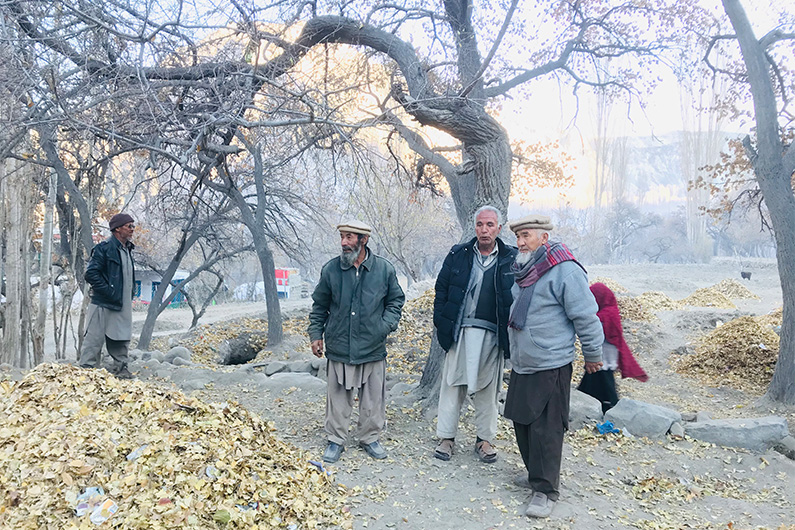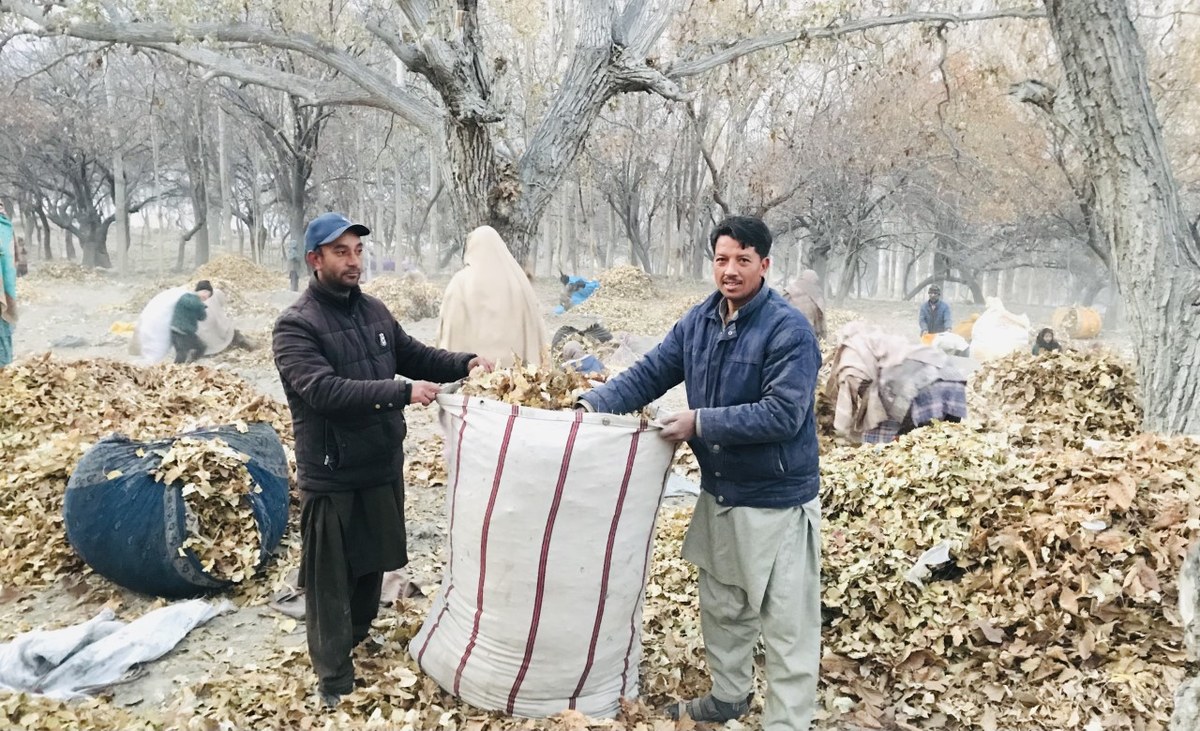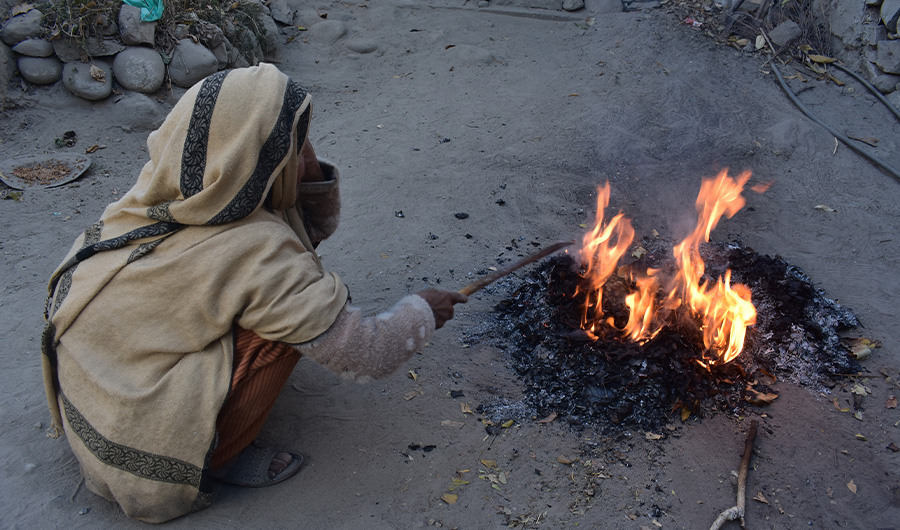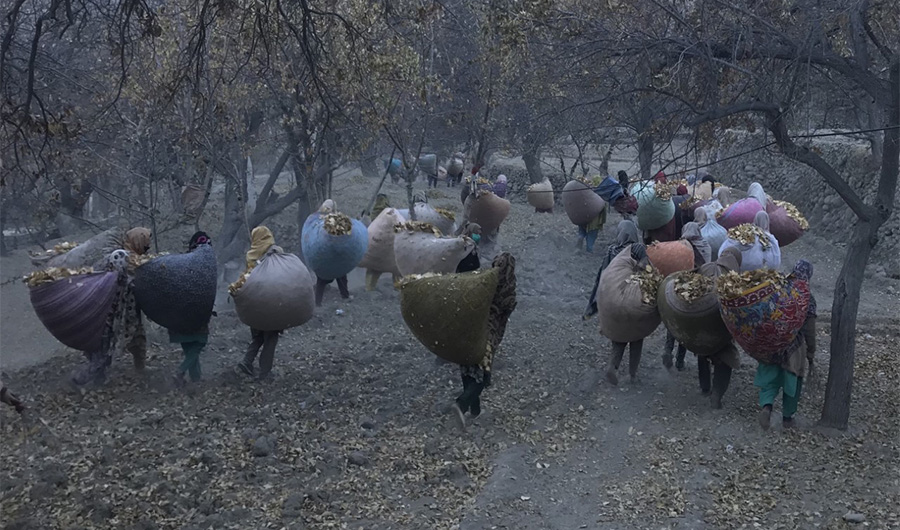KHAPLU, Gilgit-Baltistan: When autumn arrives in Khaplu valley with its foliage of boastful reds, yellows and copper browns, families welcome it as a “blessing” — not for the colorful spectacle, but for the fuel the falling leaves will become when burnt come winter, helping locals survive the harsh weather in Pakistan’s mountainous north.
The valley in the northern region of Gilgit-Baltistan, surrounded by some of Pakistan’s highest peaks and glaciers, is home to over 24,000 people who remain largely cut off from the rest of the country in the winter months when temperatures can fall below minus 20 degrees Celsius.
In the absence of reliable gas or electricity sources, residents have had to find alternative means of heating their homes. One option is burning the colorful leaves that fall in autumn, which locals call “gold” and diligently collect between late November and early December to use as burning fuel in the winter ahead.
“We don’t waste dried leaves because they are the main source of heating for us,” Muhammad Jaffar, a 68-year-old resident of Garbong village, told Arab News.

People stand near a pile of dried leaves in Garbong village of Khaplu valley in Ghanche district of Gilgit-Baltistan, Pakistan, on December 2, 2021. (AN photo by Nisar Ali)
Jaffar, a member of the village’s welfare committee, which is responsible for leaf collection and distribution, said the dried leaves were “the biggest blessing.”

Men and women collect their share of dried leaves after distribution in Garbong village of Khaplu valley in Ghanche district of Gilgit-Baltistan, Pakistan, on December 2, 2021. (AN photo by Nisar Ali)
The collection and distribution of dried leaves among Garbong’s 130 households takes almost a week. Each household nominates a woman representative and does not receive leaves if it fails to do so. The same practice is observed in all other villages in Khaplu valley.
Muhammad Ali, who summons residents using a mosque loudspeaker every morning during the week to collect their share of leaves from the nearby Stronpi village, said leaf collection rules and exact dates were established years ago to avoid conflict.

Members of the village committee pose for a photograph at the distribution site in Garbong village of Khaplu valley in Ghanche district of Gilgit-Baltistan, Pakista,n on December 2, 2021. (AN photo by Nisar Ali).
“Fifteen years ago, women would fight each other for dried leaves,” he said. “Now, the committee monitors all affairs of the village from mosque to working in the fields and personal disputes as well as dried leaf collection.”
Once distributed among village households, the leaves are burnt in the open air. When they stop giving off smoke, they are brought into the kitchen in a metal pot, placed under a special square table and covered with a blanket or quilt.
“Family members nestle around the table with the brunt leaves placed under it,” Stronpi resident Sajid Ali said.

An woman burns dired leaves in Garbong village of Khaplu valley in Ghanche district of Gilgit-Baltistan, Pakistan, on December 2, 2021. (AN photo by Nisar Ali)
Fatima, a village’s elder who only gave her first name, said there was a special room in her basement to store the leaves during winter.
“Without dried leaves, how could we spend the winter days?” she said. “It’s only seasonal dried leaves, but for us it is like gold.”

People carrying dried leaves walk in Garbong village of Khaplu valley in Ghanche district of Gilgit-Baltistan, Pakistan, on December 2, 2021. (AN photo by Nisar Ali)












